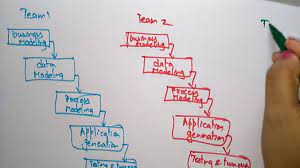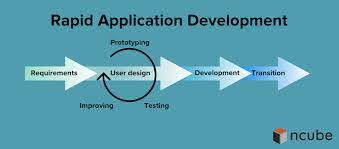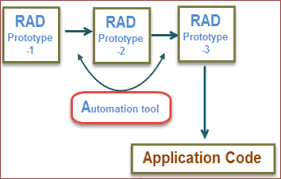Exploring the Practical Application of Software Engineering Principles
The Importance of Software Engineering in Today’s World
Software engineering plays a crucial role in the development and maintenance of various software applications that we use in our daily lives. From mobile apps to complex enterprise systems, software engineering principles are applied to ensure that these applications are reliable, efficient, and user-friendly.
Key Aspects of Software Engineering
Software engineering involves a systematic approach to designing, developing, testing, and maintaining software applications. Some key aspects of software engineering include:
- Requirements Analysis: Understanding the needs and expectations of users to define the functionality of the software.
- Design: Creating a blueprint for the software solution based on the requirements analysis.
- Coding: Writing code using programming languages to implement the design.
- Testing: Evaluating the software to identify and fix any defects or issues.
- Maintenance: Updating and enhancing the software over time to meet changing requirements.
Applications of Software Engineering
The application of software engineering is vast and diverse. Here are some common areas where software engineering is applied:
- Mobile Applications: Developers use software engineering principles to create user-friendly and responsive mobile apps for various platforms like iOS and Android.
- Web Development: Websites and web applications are built using software engineering practices to ensure functionality, security, and scalability.
- Enterprise Systems: Large-scale business applications rely on robust software engineering techniques to manage complex processes efficiently.
- Gaming Industry: Game developers apply software engineering principles to design and develop interactive and engaging gaming experiences for players.
The Future of Software Engineering
In an ever-evolving technological landscape, the field of software engineering continues to advance rapidly. Emerging trends such as artificial intelligence, machine learning, and cloud computing are reshaping how software is developed and deployed. As we move towards a more connected world, the demand for skilled software engineers who can adapt to these changes will only increase.
In conclusion, software engineering is a critical discipline that drives innovation and productivity across industries. By applying sound engineering practices to software development, we can create reliable solutions that meet the needs of users while pushing the boundaries of what technology can achieve.
6 Essential Tips for Effective Software Engineering Practices
- Follow best practices and coding standards to write clean and maintainable code.
- Use version control systems like Git to track changes and collaborate with team members effectively.
- Write comprehensive automated tests to ensure the reliability and quality of your software.
- Document your code, design decisions, and project architecture to aid in future maintenance and onboarding of new team members.
- Regularly refactor code to improve its structure, readability, and performance.
- Stay updated with the latest technologies and trends in software engineering to enhance your skills and stay competitive.
Follow best practices and coding standards to write clean and maintainable code.
Following best practices and coding standards is essential in software engineering to ensure the development of clean and maintainable code. By adhering to established guidelines and industry standards, developers can enhance the readability, reliability, and scalability of their codebase. Consistent coding practices not only make it easier for team members to collaborate effectively but also facilitate future maintenance and updates. Writing clean and maintainable code not only improves the overall quality of the software but also contributes to a more efficient development process and better user experience.
Use version control systems like Git to track changes and collaborate with team members effectively.
Utilizing version control systems like Git is essential in the application of software engineering to track changes and facilitate seamless collaboration among team members. By using Git, developers can maintain a history of modifications made to the codebase, enabling them to revert to previous versions if needed and merge changes from multiple contributors efficiently. This practice not only enhances code quality and transparency but also streamlines the development process by providing a centralized platform for team communication and project management.
Write comprehensive automated tests to ensure the reliability and quality of your software.
To ensure the reliability and quality of your software, it is essential to write comprehensive automated tests. Automated testing allows developers to systematically verify the functionality of their code, identify potential bugs or issues, and ensure that the software performs as intended across different scenarios. By implementing automated tests as part of the software engineering process, teams can catch errors early, streamline the debugging process, and ultimately deliver a more robust and dependable product to end-users.
Document your code, design decisions, and project architecture to aid in future maintenance and onboarding of new team members.
Documenting your code, design decisions, and project architecture is a crucial tip in the application of software engineering. By maintaining comprehensive documentation, you not only facilitate future maintenance tasks but also streamline the onboarding process for new team members. Clear and detailed documentation provides insights into the rationale behind coding choices, system design considerations, and overall project structure. This practice ensures continuity in development efforts, promotes collaboration among team members, and enhances the scalability and maintainability of software projects in the long run.
Regularly refactor code to improve its structure, readability, and performance.
Regularly refactoring code is a crucial tip in the application of software engineering. By continuously reviewing and restructuring code, developers can enhance its overall structure, readability, and performance. Refactoring allows for the elimination of redundant or inefficient code segments, making the software easier to maintain and modify in the future. Additionally, improved code readability ensures that team members can easily understand and collaborate on the project. Ultimately, regular refactoring not only enhances the quality of the software but also contributes to a more efficient development process.
Stay updated with the latest technologies and trends in software engineering to enhance your skills and stay competitive.
Staying updated with the latest technologies and trends in software engineering is essential for enhancing your skills and remaining competitive in the ever-evolving tech industry. By keeping abreast of new developments, tools, and methodologies, you can adapt to changing requirements and deliver innovative solutions that meet the demands of modern software development. Continuous learning and exploration of emerging technologies not only broaden your knowledge but also empower you to tackle complex challenges with confidence and efficiency. Embracing lifelong learning in software engineering ensures that you remain at the forefront of the field, ready to embrace new opportunities and contribute meaningfully to the advancement of technology.







